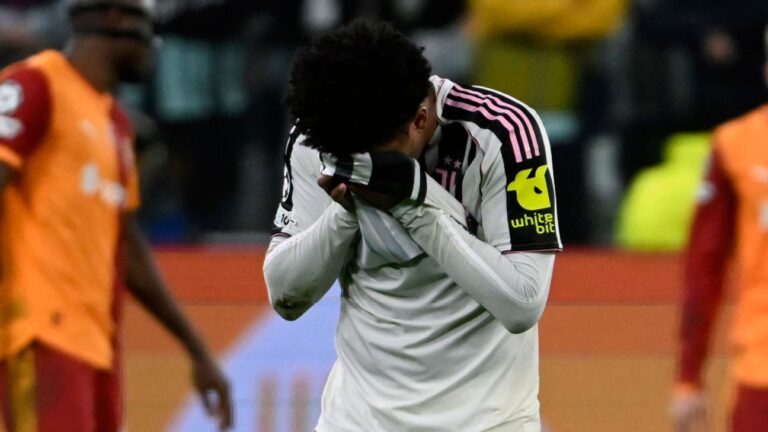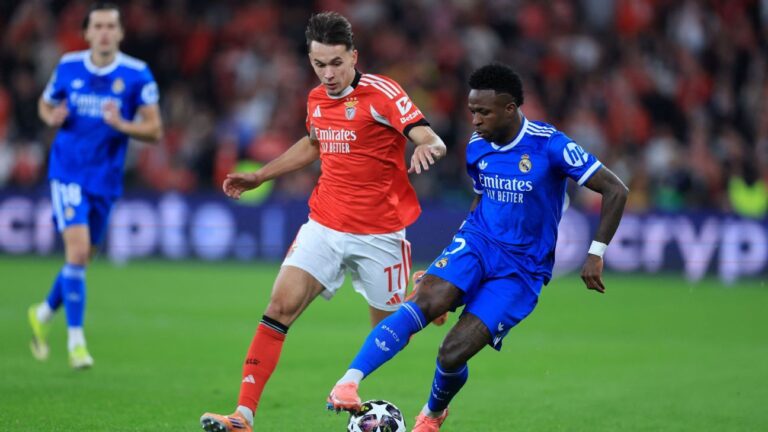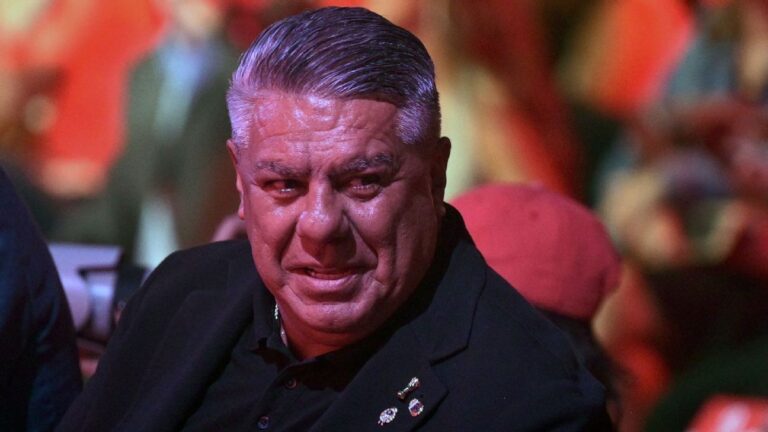Moments after Chelsea’s emphatic 6-0 Women’s Super League (WSL) win at Aston Villa, the club announced that manager Emma Hayes would leave at the end of season. ESPN sources have confirmed she is now set to take the United States job, and those unaware of her achievements in the English game will wonder what she will bring.
Since arriving at Chelsea in August 2012, Hayes has won six WSL titles, five FA Cups and two League Cups, as well as the one-off Spring Series in 2017 and the Community Shield in 2020. The only title that continues to elude her is the Women’s Champions League: her team made it to the final just once, back in 2020-21, where they were soundly beaten by Barcelona.
– Stream on ESPN+: LaLiga, Bundesliga, more (U.S.)
Far from just being a manager who has filled the trophy cabinets at Chelsea, Hayes has overseen the transformation of the women’s side of the club, constantly pushing for better treatment, investment and respect; all of those efforts have helped positively impact women’s football across England. Chelsea have improved season on season, as Hayes had developed the squad, filling the dressing room with winners and offering them some of the highest standards.
Speaking on her contribution to Chelsea, sporting directors Laurence Stewart and Paul Winstanley said: “Emma has been one of the biggest drivers of change in women’s football. Her achievements at Chelsea are unrivalled and will live in the club’s history forever.”
Here’s what USWNT fans can expect from Hayes, both on and off the field.
Hayes takes a holistic approach to coaching, looking for marginal gains off the pitch, treating her players with compassion and fostering the right environment to help them flourish. She has enhanced her backroom staff and looked at the impact of things such as the menstrual cycle on the physical recovery of her players, as well as the need for better practices in women’s health and sport.
She has also been there for players when they’ve needed support, displaying an industry leading personal touch to take care of them beyond the bounds of a football pitch. And it’s not just players who’ve lauded Hayes for her empathy and willingness to be a sounding board; both Carla Ward (coaching at Aston Villa) and Kelly Cousins (nee Chambers, who worked at Reading before taking a director of football role with the Utah Royals) both citing her as a confidant who has helped them on their managerial journeys.
Having cut her teeth with the Long Island Lady Riders and Iona College in New York, Hayes returned to England as Vic Akers’ assistant at Arsenal. Hayes’ experiences on the other side of the Atlantic didn’t end there as she spent two years with Chicago Red Stars. It was so key in her development that she once told Chelsea TV that although she was born in England, she was “definitely made in America.”
Throughout her career, and specifically at Chelsea, Hayes has tried to keep ahead of the curve when it comes to coaching and player management, always looking for out-of-the-box — or out-of-football — ways to reach her players and help them grow. From giving her squad books to read, to having them train in jerseys of the opposition — thereby changing how Chelsea perceived Arsenal, who were the dominant team in England before the Blues — and use of motivational speakers and videos.
Ahead of their Champions League semifinal second leg against Bayern Munich in 2021, with Chelsea needing to overturn a 2-1 deficit from the first leg, Hayes showed her players a video of a UFC champion repeating, “I’m the best” just before a fight. Chelsea went on to win 4-1 at home, overrunning a Bayern team who had no answer.
Two years earlier, at the same stage of the competition, Chelsea needed to overturn a 2-1 loss against the [then] five-time winners Lyon. Rather than look to sport for help, Hayes invited Holocaust survivor Susan Pollock MBE to Cobham, who gave a talk to her squad to both educate and help her players grow. Chelsea ran eventual champions Lyon close, pushing them hard all the way to the final whistle in a creditable 1-1 draw.
Hayes will complete another season with Chelsea in 2023-24 before taking full charge of the USWNT ahead of the Paris Olympics. With the U.S. having sleepwalked through the past three years under former coach Vlatko Andonovski, who departed his role on Aug. 17 after the team’s worst-ever showing at the 2023 World Cup and round of 16 exit, Hayes’ appointment signals the start of a new era.
During her time with Chelsea, Hayes has worked on perfecting different styles, memorably using a three-player defense during Chelsea’s early outings in Europe, putting the emphasis on a clean sheet and on attacking from the back. Over the years as the Blues have developed, the focus has shifted forward to defending from the front, allowing for a more aggressive flow with the ball.
The U.S. arguably failed to harness the best of their attack under Andonovski, but Hayes will likely deploy a similar style to the one she’s developed at Chelsea that allows flexibility in personnel and player overloads in the final third. The embarrassment of riches in the USWNT talent pool is likely to cause headaches as Hayes narrows down the players who are best-suited to her squad, and those who will fall outside of a standard 23-player roster. There is little question about the quality coming through, but the national team needs an overhaul, something Hayes is used to; as a coach, she’s no stranger to taking a cut-throat attitude when needed.
An example can be found from her early days in London. From that first Chelsea squad of 22 that Hayes inherited, only 11 players returned for her in 2013, with another seven let go the following year as she brought in talent from across the globe to fit her evolving vision just as she’d tried to do with the Chicago Red Stars. Indeed, no player could get too comfortable in a Hayes team; many who helped deliver Chelsea’s first WSL title in 2015-16 were soon surplus as the manager again took the chance to decisively upgrade her squad.
There is no question Hayes plays an active role when it comes to her team, but she is still a manager whose focus is on winning leaves little room for sentimentality. Or as U.S. international Catarina Macario said to the Daily Mail earlier this year, “She’s a very passionate individual. She has tough love with her players which is something that brings out the best in you. But she’ll also give you praise, the little things when it’s needed.”
It’s also worth pointing out that she’s been critical of the USWNT since the 2023 World Cup, writing bluntly about their shortcomings in the Telegraph:
She didn’t stop there:
This could hint at more than just cosmetic changes once Hayes is fully comfortable in the role.
Hayes is at her best when she lets the natural talent of her players shine regardless of formations and positions, but the key is how the team comes together, working as a unit, covering space to strangle chances for the opposition.
Likewise, as her teams move forward, they tend to in one large mass, stretching across the pitch and closing down the ball, forcing turnovers to keep the odds in their favor. A standard of the Hayes era at Chelsea was how the Blues routinely looked as if they had a numerical advantage.
There will be players in the U.S. team already familiar to Hayes, having brought Mia Fishel and Macario — who is yet to feature after suffering an ACL injury in 2021 — to Chelsea over the summer. Hayes also has the rare opportunity of helping the attacking duo understand her ideas for the USWNT before she takes full charge in May.
As well as Fishel and Macario, Crystal Dunn will be more than familiar with Hayes, the forward/defender/forward having spent 2017 and half of 2018 in Chelsea blue. Indeed, it was Hayes who opted to push Dunn into the defensive third even after the U.S. international had proven her worth in the forward line, picking up the NWSL golden boot in 2015.
It was during a time period when Hayes was trying to employ a back three: the change of shape relegated Dunn to a wingback role even though she would also take up wide midfield and striking roles in the team. How and where Hayes intends to use Dunn for the USWNT remains to be seen, although as has been overtly clear — and not just when looking at her recent additions to the Chelsea squad — she prizes versatility.
When it comes to the U.S. national team, there’s little reason for the ruthless and attack-focused style not to be applied similarly as it has been with Chelsea, but Hayes’ first point of order might well be about developing the players off the pitch with the limited time she has before taking the job on a permanent basis. (She’ll be juggling her Chelsea job for the rest of the season with this new remit, only getting 10-day international windows with which to work her new squad.) This time will likely be spent looking for existing partnerships to exploit or finding the harmony that allows for flexibility, be it positional or personnel.




